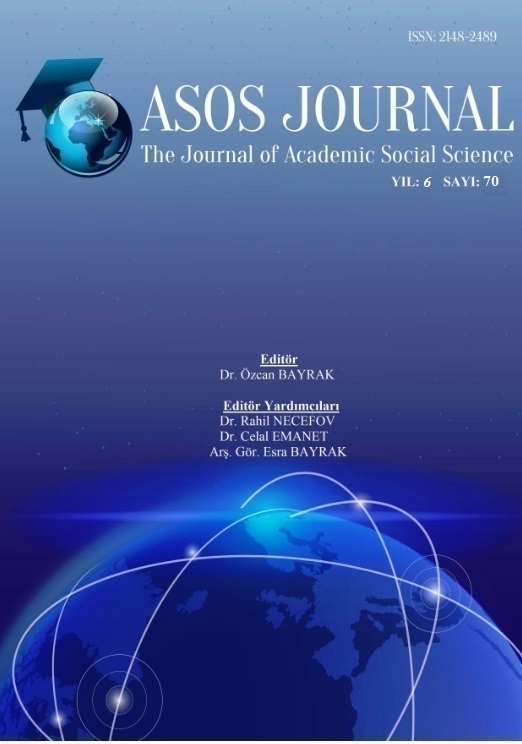HZ. EBU BEKİR’İN HALİFE SEÇİMİNDE EVS VE HAZREÇ KABİLELERİNİN TUTUMU VE HİLAFETİ DÖNEMİNDE İDAREDEKİ ROLLERİ ÜZERİNE BİR İNCELEME
Author :
Abstract
Hz. Peygamber’in vefat etmesi üzerine Beni Saide gölgeliğinde bir araya gelen Evs ve Hazreç kabileleri Allah Resulü’nden sonra devleti kimin yöneteceğini belirlemek istediler. Bu iş için ön plana çıkan isim Hazreç kabilesi reisi Sa’d b. Ubade’ydi. Konuşma onun öncülüğünde başlamış ve bu iş için hak sahiplerinin Medine sakinleri olduğu vurgulanmıştı. Bu sırada Muhacirlerden Hz. Ebu Bekir, Hz. Ömer ve Ebu Ubeyde toplantının yapıldığını haber almış ve ardından Beni Saide gölgeliğine gelmişti. Muhacirlerin buraya gelişiyle birlikte hararetli tartışmalar yaşanmış, Ensar grubu İslam’a hizmetlerini, Muhacirler ise Hz. Peygamber’e yakınlıklarını ve Araplar arasında Kureyş’in konumununu ön plana çıkararak rakiplerinin argümanlarını çürütmeye çalışmışlardır. İki tarafın uzun süren tartışmalarından sonra Evs kabilesinin de desteğiyle Hz. Ebu Bekir halife seçilmiştir. Halife, Beni Saide gölgeliğinde kendisi aleyhine tavır takınan Hazreç Kabilesi’nden dokuz, kendisini destekleyen Evs Kabilesi’nden de dört kişiyi hilafeti süresince devlet görevlerinde istihdam etmiştir. Hazreç kabilesi üyeleri vali, komutan, askeri ulak, davet elçisi, Kâtip, Sancaktar ve zekât amili olarak görevlendirilirken Evs kabilesi üyeleri şura üyeliği, vekillik, zekât amilliği ve askeri ulaklık gibi vazifeleri yürütmüşlerdir.
Keywords
Abstract
After the passing away of Prophet Muhammad, the Aws and Khazraj tribes came together to decide who will be the successor to Prophet Muhammad. The person that came into prominence for the new ruler of the state was Sa’d b. Ubaydah from the Khazraj tribe. The discussion started under Sa’d b. Ubaydah’s leadership and the locals of Medina were emphasized as the eligible people to rule the state. Meanwhile, from the Muhājirūn (those who followed the Prophet from Mecca to Medina) Abu Bakr, Umar and Abu Ubaydah were informed that the meeting was held and then they went to the meeting which was at a garden owned by the tribe Bani Sa’ida. While the Anṣār (Supporters of Prophet Muhammad from Medina) explained the great service they had provided to Islam. On the other side, the Muhājirūn were arguing the very close relationship to the Prophet Muhammad and the significance of Quraysh among the Arab tribes. After long discussion between the two sides, Abu Bakr was elected as the Caliph with the support of the Aws tribe. The Caliph Abu Bakr, during his caliphate assigned nine people from Khazraj tribe even though they were against his caliphate and four people from Aws tribe despite supported his caliphate. Members of Khazraj tribe were assigned to positions such as governer, commander, dispatch rider, inviter to Islam, secretary, bannerman, and chief of almsgiving. Whereas members of the Aws tribe were assigned to postions such as advisor, deputy, chief of almsgiving and dispatch rider.





